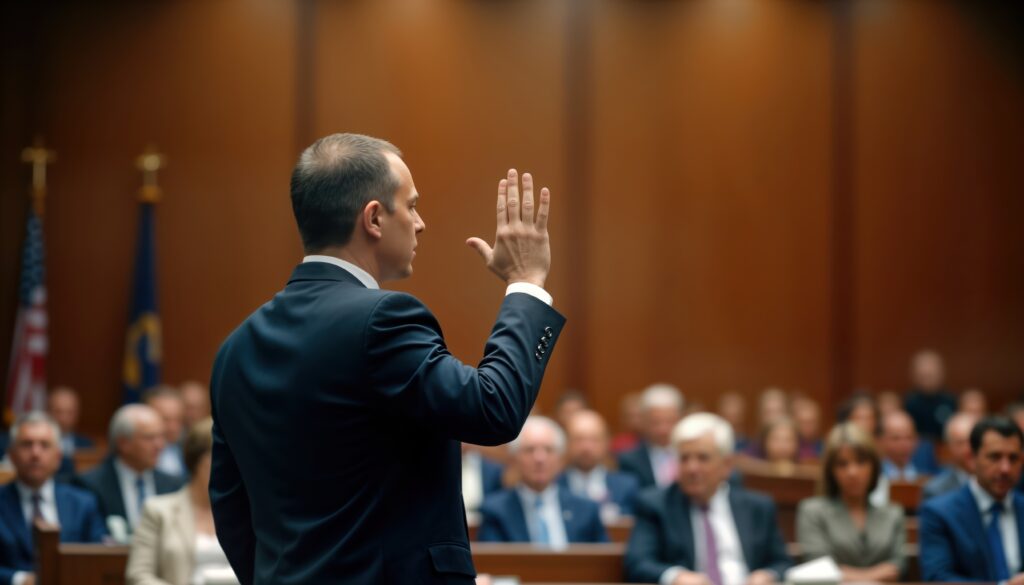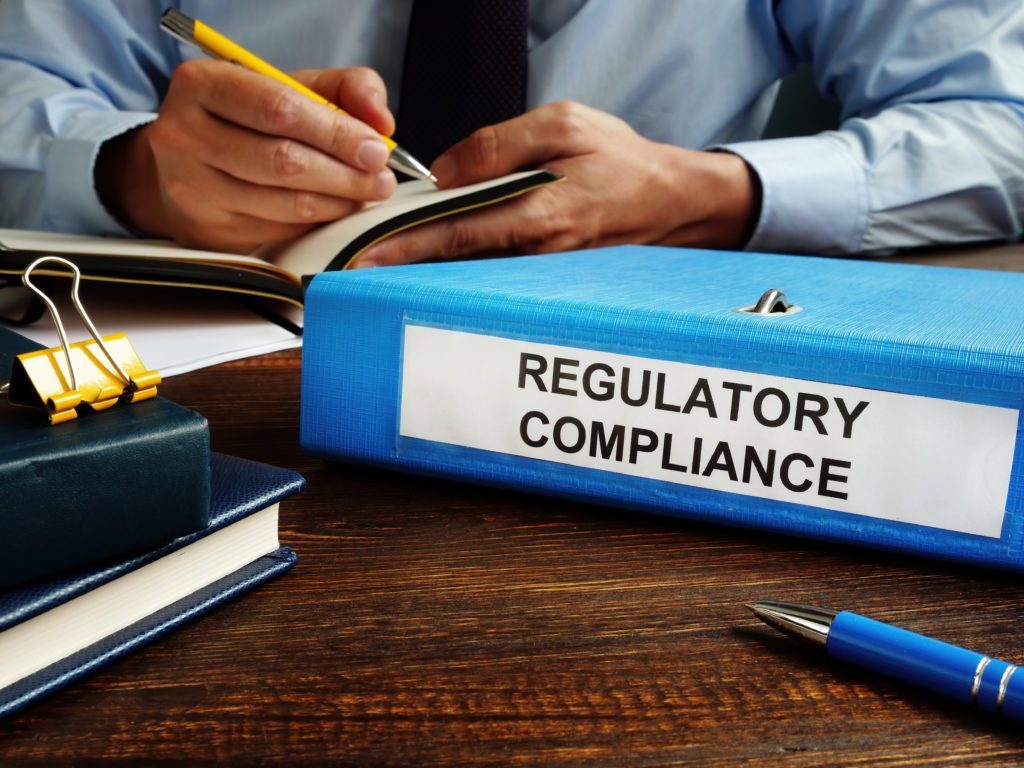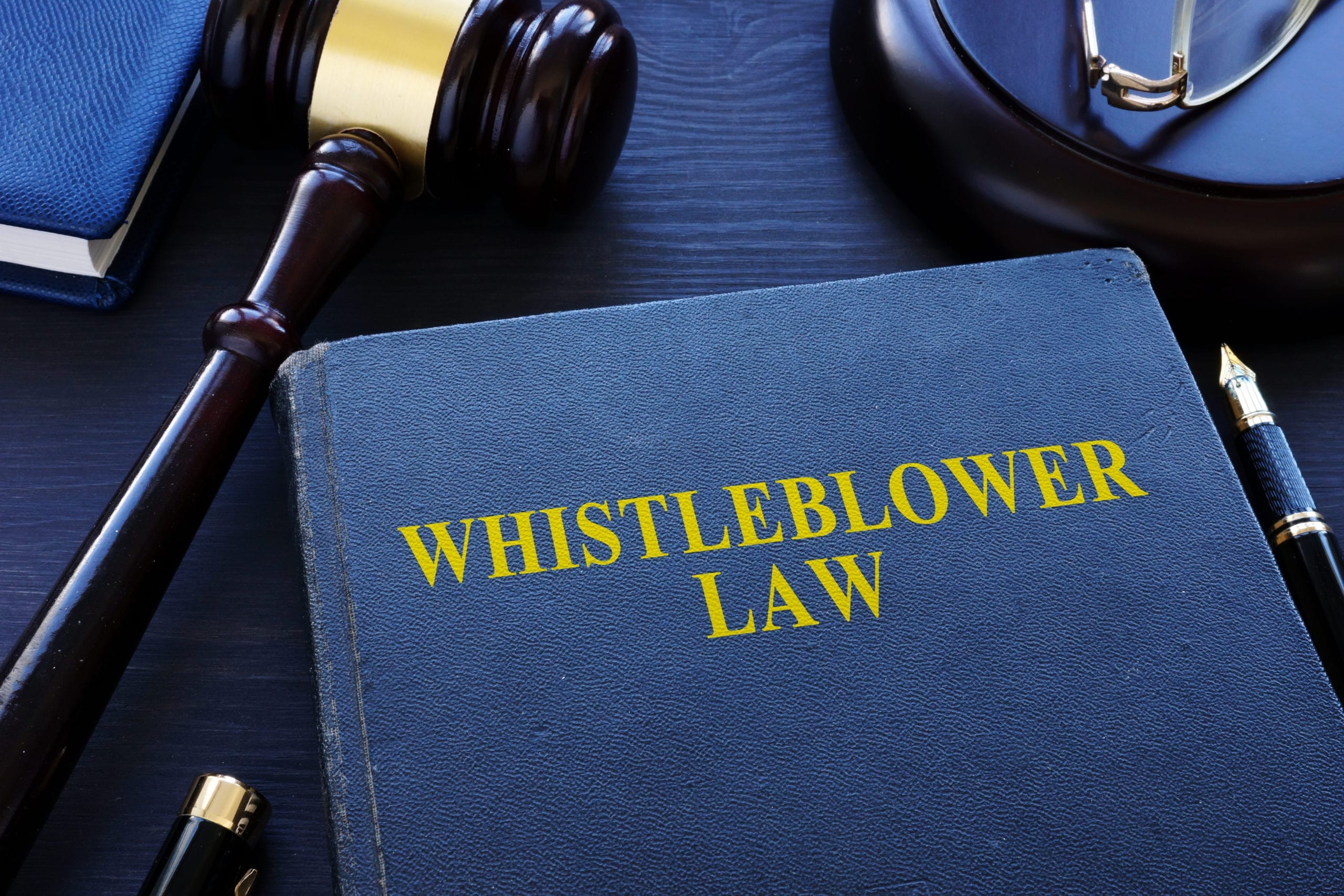BRIAN J GRABER LLC is an Illinois Whistleblower Act lawyer representing employees whose employer has retaliated against them in violation of the Illinois Whistleblower Act. The Illinois Whistleblower Act (IWA), 740 ILCS 174/1, et seq., was amended effective January 1, 2025. If you believe you were retaliated against in violation of the Illinois Whistleblower Act, 740 ILCS 174/1, et seq., contact BRIAN J GRABER LLC, an Illinois Whistleblower Act lawyer, at (312) 291-4648. Generally, an employee must prove the following elements for a retaliation claim under the Illinois Whistleblower Act:
- The employee engaged in protected activity as defined by the statutes 740 ILCS 174/15(a), (b), or (c), or 740 ILCS 174/20;
- The decision-maker had notice of the employee’s protected activity under the statutes 740 ILCS 174/15(a), (b), or (c), or 740 ILCS 174/20;
- The decision-maker took adverse employment action against the employee;
- The employee’s protected activity was the cause of the adverse employment action; and
- Damages flowing from the adverse employment action.
The Illinois Whistleblower Act Applies to all Employers in Illinois.
The Illinois Whistleblower Act applies to all employers with one or more employees in the State of Illinois. The Illinois Whistleblower Act broadly defines the term “employer” as follows:
“Employer” means: an individual, sole proprietorship, partnership, firm, corporation, association, and any other entity that has one or more employees in this State, including a political subdivision of the State; a unit of local government; a school district, combination of school districts, or governing body of a joint agreement of any type formed by two or more school districts; a community college district, State college or university, or any State agency whose major function is providing educationsl services; any authority including a department, division, bureau, board, commission, or other agency of these entities; and any person acting within the scope of his or her authority, express or implied, on behalf of those entities in dealing with its employees.
Illinois Whistleblower Act, 740 ILCS 174/5, effective January 1, 2025.
This definition of “employer” under 740 ILCS 174/5 imposes liability on management employees acting within the scope of their authority, express or implied, on behalf of an entity in dealing with its employees. The Illinois Whistleblower Act imposes liability on all political subdivisions of the State of Illinois, municipal employers, and county employers. Employees of the State of Illinois may have claims under the Illinois State Officials and Employees Ethics Act, 5 ILCS 430/1-1 et seq. Click here to learn about your rights under the Ethics Act.
The Illinois Whistleblower Act broadly defines Employees.
The Illinois Whistleblower Act broadly defines the term “employee” as follows:
“Employee” means any individual permitted to work by an employer unless: (1) the inidividual has been and will be free from control and direction over the performance of his or her work, both under his or her contract of service with his or her employer and in fact; (2) the individual performs work which is outside the usual course of business or is performed outside of all places of business of the employer unless the employer is in the business of contracting with parties for the placement of employees; and (3) the individual is in an indepdently established trade, occupation, profession, or business.
Illinois Whistleblower Act, 740 ILCS 174/5, effective January 1, 2025.
The definition of “employee” does not include an independent contractor. However, the individual or entity that employs the independent contractor may be liable under the Freelance Worker Protection Act. Employees who have an employment contract are not at-will employees. Employees who are wrongfully terminated and are not “at-will employees” do not have a claim for wrongful termination under the Illinois common law tort of retaliatory discharge. See Taylor v. Bd. of Edu., 381 Ill. Dec. 298, 307-308 (1st Dist. 2014). However, employees employed on a contractual basis are protected under the Illinois Whistleblower Act if their contract is not renewed in retaliation for their protected activity. See Taylor, 381 Ill. Dec. at 312. (holding an assistant principal suffered from retaliation in the form of the non-renewal of his employment contract, resulting from reporting child abuse).
The Illinois Whistleblower Act defines “employee” broadly enough to include a licensed physician.
Generally licensed physicians may be considered independent contractors at hospitals, nursing homes, clinics, or healthcare facilities. However, the Illinois Whistleblower Act’s broad definition of the term “employee” can include licensed physicians in the following circumstances:
“Employee” also includes, but is not limited to, a licensed physician who practices his or her profession, in whole or in part, at a hospital, nursing home, clinic, or any medical facility that is a health care facility funded, in whole or in part, by the State.
Illinois Whistleblower Act, 740 ILCS 174/5, effective January 1, 2025.
Before the Illinois Whistleblower Act, physicians whose privilege to practice medicine was revoked at hospitals or nursing homes for whistleblowing generally could not meet the common law definition of “employee” and, therefore, did not have any Illinois common law claim for the tort of retaliatory discharge. See Oommen v. Glen Health & Home Mgmt., 2020 IL App (1st) 190854 (affirming dismissal of doctor’s common law tort claim of retaliatory discharge for whistleblowing because the doctor failed to submit evidence to create an issue of fact as to employee status). However, a hospital or nursing home that accepts Medicaid payments is covered by the Illinois Whistleblower Act, 740 ILCS 174/5, when it revokes a doctor’s privileges to practice medicine at its facility in retaliation for whistleblowing activity. See Oommen, 2020 IL App (1st) 190854 (Medicaid payments do indeed constitute State funding, and doctors practicing at medical facilities receiving such payments are “employees” with standing to sue under the IWA).

If you believe your privileges to practice medicine at a hospital, nursing home, or another medical facility accepting Medicaid were revoked in retaliation for whistleblowing activities in violation of the Illinois Whistleblower Act, contact BRIAN J GRABER LLC, an Illinois Whistleblower Act lawyer at (312) 291-4648 or by email to schedule a free confidential consultation. Learn more about your rights under the Hospital Whistleblower Law.
Protected Activity – Reporting Violations of Law or Substantial and Specific Danger to Employees, Public Health, or Safety.
There are three different ways an employee can engage in protected activity under the Illinois Whistleblower Act, 740 ILCS 174/15. An employee engages in protected activity under 740 ILCS 174/15(a) as follows:
An employer may not take retaliatiroy action against an employee who discloses or threatens to disclose to a public body conducting an investigation, or in a court, an administrative hearing, or any other proceeding initialed by a public body, information related to an activity, policy, or practice of the employer where the employee has a good faith belief that the activity, policy, or practice (i) violates a State or federal law, rule, or regulation or (ii) poses a substantial and specific danager to employees, public health, or safety.
Illinois Whistleblower Act, 740 ILCS 174/15(a), effective January 1, 2025.

Any employee engaging in the activity described in 740 ILCS 174/15(a) has engaged in protected activity under the Illinois Whistleblower Act. The Illinois Whistleblower Act, 740 ILCS 174/5, defines “public body” as follows:
“Public body” means any of the following: the State; any officer, board, political subdivision, or commission of the State; any institution supported in whole or in part by public funds; units of local government; and school districts.
Illinois Whistleblower Act, 740 ILCS 174/5, effective January 1, 2025.
An employee can engage in protected activity under 740 ILCS 174/15(b) as follows:
An employer may not take retaliatory action against an employee for disclosing or threatening to disclose information to a government or law enforcment agency information related to an activity, policy, or practice of the employer, where the employer has a good faith belief that the activity, policy, or practice of the employer (i) violates a State or federal law, rule, or regulation or (ii) poses a substantial and specific danager to employees, public health, or safety.
Illinois Whistleblower Act, 740 ILCS 174/15(b), effective January 1, 2025.
Any employee engaging in the activity described in 740 ILCS 174/15(b) has engaged in protected activity under the Illinois Whistleblower Act.

If you believe you were retaliated against by your employer for disclosing or threatening to disclose information to a law enforcement agency information related to an activity, policy, or practice of your employer, where you have good faith belief that the activity, policy, or practice of the employer either (i) violates an Illinois or federal law, rule or regulation or (ii) poses a substantial and specific danger to employees, public health or safety contact BRIAN J GRABER LLC, an Illinois Whistleblower Actlawyer at (312) 291-4648 or by email to schedule a free confidential consultation.

If you believe you were retaliated against by your employer for disclosing or threatening to disclose information to a governmental regulatory agency information related to an activity, policy, or practice of your employer, where you have good faith belief that the activity, policy, or practice of the employer either (i) violates an Illinois or federal law, rule or regulation or (ii) poses a substantial and specific danger to employees, public health or safety contact BRIAN J GRABER LLC, an Illinois Whistleblower Actlawyer at (312) 291-4648 or by email to schedule a free confidential consultation.
Common Governmental and Law Enforcement Agencies
Aside from dialing 911 to report information related to an activity, policy, or practice of your employer that you have a good faith belief either violates an Illinois or federal law, rule, or regulation or poses a substantial and specific danger to employees, public health, or safety, here is a list of common governmental and law enforcement agencies:
- Illinois State Police – Division of Criminal Investigation (217) 782-1320
- Federal Bureau of Investigation-Chicago Field Office (312) 421-6700
- OSHA – filing workplace safety complaints (800) 231-6742
- Illinois Department of Public Health – regulates hospitals, nursing homes, and other medical facilities (800) 252-4343
- Illinois Attorney General – (312) 814-3000
- Office of the Executive Inspector General – (866) 814-113
- Cook County Office of the Independent Inspector General – (312) 603-0350
- Chicago Office of the Inspector General – (773) 478-7799
- Federal Motor Carrier Safety Administration – (888) 368-7238
- Federal Aviation Administration Hotline – (866) 835-5322
- Federal Transit Administration – (202) 366-4043
- Chicago Public School Office of the Inspector General – (773) 534-9400
- Cook County Department of Public Health – (708) 836-8600
- Chicago Department of Public Health – (312) 746-8030
- U.S. Department of Justice Public Integrity Section (202) 514-1412
A complete list of all federal and Illinois governmental regulatory and law enforcement agencies is impossible to produce, as many employers’ businesses are regulated by different Illinois and federal agencies.
If you believe that your employer retaliated against you because of your protected activity under the Illinois Whistleblower Act, 740 ILCS 174/15(b), contact BRIAN J GRABER LLC, an Illinois Whistleblower Act lawyer at (312) 291-4648 or by email.
Finally, an employee can engage in protected activity under 740 ILCS 174/15(c) as follows:
An employer may not take retaliatory action against an employee for disclosing or threatening to disclose to any supervisor, prinicipal officer, board member, or supervisor in an organization that has a contractual relationship with the employer who makes the employer aware of the disclosure, information related to an activity, policy, or practice of the employer if the employee has a good faith belief that the activity, policy, or practice (i) violates a State or federal law, rule, or regulation or (ii) poses a substantial and specific danager to employees, public health, or safety.
Illinois Whistleblower Act, 740 ILCS 174/15(c), effective January 1, 2025.
The Illinois Whistleblower Act as amended by 740 ILCS 174/15(c) now includes as “protected activity” situations where an employee internally discloses or threatens to disclose to a supervisor information related to an activity, policy, or practice of the employer if there is a good faith belief that the activity, policy, or practice (i) violates a State or federal law, rule, or regulation or (ii) poses a substantial and specific danger to employees, public health, or safety.
The Illinois Whistleblower Act, 740 ILCS 174/5, defines a “supervisor” as follows:
“Supervisor” means any individual who has the authority to direct and control the work performance of the affected employee; or any individual who has managerial authority to take corrective action regarding a violation of the law, rule, or regulation disclosed by the employee in accordance with Section 15.
Illinois Whistleblower Act, 740 ILCS 174/5, effective January 1, 2025.
Therefore, to engage in protected activity under 740 ILCS 174/15(c) the employee must disclose or threaten to disclose internally to a “supervisor” as the term is defined by 740 ILCS 174/5 to impose liability on the employer.

If you believe you were retaliated against by your employer for your protected activity under 740 ILCS 174/15(c), contact BRIAN J GRABER LLC, an Illinois Whistleblower Act lawyer at (312) 291-4648 or by email to schedule a free confidential consultation.
Protected Activity – Refusing to Participate in Violation of State or Federal Laws, Rules, and Regulations.
An employee can engage in protected activity under the Illinois Whistleblower Act, 740 ILCS 174/20 by engaging in the following conduct:
An employer may not take retaliatory action against an employee for refusing to participate in an activity that the employee has a good faith belief that such participation would result in a violation of a State or federal law, rule, or regulation, including, but not limited to, violations of the Freedom of Information Act.
Illinois Whistleblower Act, 740 ILCS 174/20, effective January 1, 2025.
As amended, 740 ILCS 174/20 no longer requires an employee to prove that his or her refusal to participate in an activity would be an actual violation of a State or federal law, rule, or regulation. The employee needs only to prove he or she had a good-faith belief that participation in an activity would result in a violation of a State or federal law, rule, or regulation to have engaged in protected activity.

An employee’s repeated complaints and questions to his supervisors about what he believes to be illegal practices are insufficient to meet the Illinois Whistleblower Act’s requirement of “refusal to participate.” See Sardiga v. Northern Trust Co., 409 Ill. App. 3d 56, 57-58 (1st Dist. 2011). In Sardiga, the court held as follows:
“Refusing to participate” means exactly what it says: a plaintiff who participates in an activity that would result in a violation of a state or federal law, rule, or regulation cannot claim recourse under the Act. Instead, the plaintiff must actually refuse to participate in. . . . Thus “refusing” means refusing; it does not mean “complaining” or “questioning,” as the plaintiff would have us believe.
Sardiga v. Northern Trust Co., 409 Ill. App. 3d 56, 62 (1st District. 2011).
If you believe you were retaliated against by your employer for refusing to participate in an activity that you had a good faith belief that such participation would result in a violation of a State or federal law, rule, or regulation under 740 ILCS 174/20 contact BRIAN J GRABER LLC, an Illinois Whistleblower Actlawyer at (312) 291-4648 or by email to schedule a free confidential consultation. Illinois employees may also have claims under the Illinois common law tort of retaliatory discharge for refusing to engage in an activity that violates the law. Click here to learn more about your rights.
Proof of Adverse Employment Action.
In addition to proving that he or she engaged in protected activity under 740 ILCS 174/15(a), (b), or (c) or 740 ILCS 174/20, the employee must prove that the employer took “adverse employment action” against them. The Illinois Whistleblower Act, 740 ILCS 174/5, defines “adverse employment action” as follows:
“Adverse employment action” means an action that a reasonable employee would find materially adverse. An action is materially adverse if it could dissuade a reasonable worker from disclsing or threatening to disclose information under Section 15 or form refusing under Section 20.
Illinois Whistleblower Act, 740 ILCS 174/5, effective January 1, 2025.

The Illinois Whistleblower Act, 740 ILCS 174/5, defines “retaliatory action” as follows:
“Retaliatory action” means an adverse employment action or the threat or an adverse employment action by an employer or hjis or her agent to penalize or any non-employment action that would dissuade a reasonable worker from disclosing information under this Act. “Retaliatory action” includes but is not limited to: (1) taking, or threatening to take, any action that would intentionally interfere with an employee’s ability to obtain future employment or post-termination retaliation to intentionally interfere with a former employe’s employment; (2) taking, or threatening to contact, United States immigration authorities, or otherwise reporting, or threatening to report, an employee’s suspected or actual citizenship or immigrantion status or the suspected or actual citizenship or immigrantion status of an employee’s family or household member to a federal, State, or local agency.
Illinois Whistleblower Act, 740 ILCS 174/5, effective January 1, 2025.
The Illinois Whistleblower Act states explicitly that “retaliatory action” does not include the following:
(1) conduct undertaken at the express and specific direction or request of the federal government; (2) truthful, performance-related information about an employee or former employee provided in good faith to a prospective employer at the request of the prospective employer; or (3) conduct undertaken if specifically required by State or federal law.
Illinois Whistleblower Act, 740 ILCS 174/5, effective January 1, 2025.
Employer’s Defenses to Actions Under the Illinois Whistleblower Act.
The amended version of the Illinois Whistleblower Act, 740 ILCS 174/32, creates a “sole grounds” affirmative defense for employers as follows:
It shall be a defense to any action brought under this Act that the retaliatory action was predicated soley upon grounds other than the employer’s exercise of any rights protected by this Act.
Illinois Whistleblower Act, 740 ILCS 174/32, effective January 1, 2025.
Generally, the issue of whether the employer’s protected activity was the proximate cause for the adverse employment action is an issue in every case. The amendments to the Whistleblower Act, 740 ILCS 174/32, require the employer to plead and prove by a preponderance of the evidence that the adverse employment action was solely caused by grounds other than the employee’s protected activity. Based on the plain language of 740 ILCS 174/32, if the employer merely proves that the employee’s protected activity was one of the causes of the adverse employment action along with some other grounds, the employee still prevails, and the employer’s affirmative defense fails.
Employers consistently allege a failure to mitigate affirmative defense in employment litigation. Employers must plead and prove the affirmative defense of failure to mitigate. Employees generally must exercise reasonable care to mitigate their losses in wrongful termination cases to find comparable employment. The failure to mitigate lost wages by seeking comparable employment can result in the suspension of lost-wage damages for the period during which the employee is proven to have failed to exercise reasonable care to seek comparable employment.
Remedies for Violations of the Illinois Whistleblower Act.
Under 740 ILCS 174/30, if an employer takes any retaliatory action against an employee in violation of Section 15 or 20, the employee may bring a civil action against the employer for all relief necessary to make the employee whole, including but not limited to the following, as appropriate:
- Permanent or preliminary injunctive relief;
- Reinstatement with the same seniority status that the employee would have had, but for the violation;
- Back pay, with interest of 9% per annum up to 90 calendar days from the date the complaint is filed, and front pay;
- Liquidated damages of up to $10,000.00;
- Compensation for any costs incurred as a result of the violation, including litigation costs, expert witness fees, and reasonable attorney’s fees; and
- Additionally, the court shall award the employee a civil penalty of $10,000.00.

Do not face retaliation in violation of your rights under the Illinois Whistleblower Act alone. If you believe your employer violated your rights under the Illinois Whistleblower Act because you engaged in protected activity, contact BRIAN J GRABER LLC for a free confidential consultation at (312) 291-4648 or by email. You may also have other rights under Illinois common law, including the right to recover for retaliatory discharge in wrongful termination cases. Click here to learn more about your rights.
Key Takeaways
- BRIAN J GRABER LLC specializes in the Illinois Whistleblower Act, representing employees facing retaliation.
- Employees must prove certain elements to support retaliation claims under the Illinois Whistleblower Act, such as engaging in protected activity and suffering adverse action, and prove the adverse action was “caused” by the protected activity.
- The Illinois Whistleblower Act applies to all employers in Illinois and broadly defines both ’employer’ and ’employee.’
- Protected activities include reporting violations or refusing to participate in illegal practices, allowing employees to seek protection under the law.
- If retaliated against, employees may seek legal remedies, including reinstatement, back pay, and civil penalties under the Illinois Whistleblower Act.
